Unveiling the Truth About Honey: Is It Really a Healthier Sweetener Option? Discover the facts and myths behind this golden elixir. Read on to unravel the mysteries of honey's impact on your health
For
generations in India, honey has taken a place of respect in our kitchens and our culture. From a chamatkarik ingredient in grandma's remedies to a sweet addition in our morning chai, honey seems harmless and healthy.
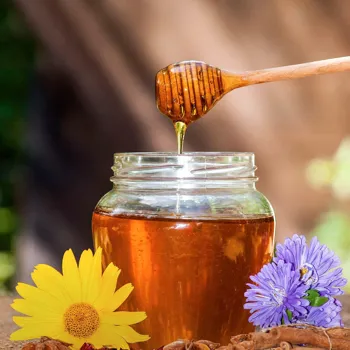
But with the rising awareness about sugar and its impact on our health, it's time to ask: is honey truly a healthier sweetener option? Let's dig deeper into this golden liquid and separate the facts from fiction.
Honey: Not Just Empty Calories, Rich in Nutrients and Antioxidants
First things first, honey isn't just empty calories. Unlike refined sugar, honey contains trace amounts of vitamins, minerals, and antioxidants. These include things like vitamin C, calcium, iron, and potassium.
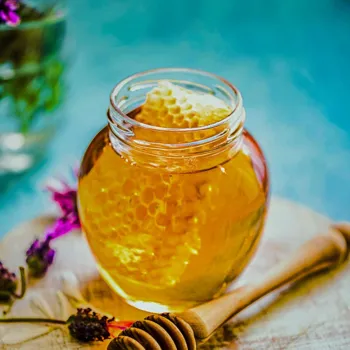
Antioxidants, those amazing compounds that fight cell damage, are also present in honey, particularly darker varieties. Studies seem to show that these antioxidants might help protect against heart disease and some types of cancer.
Honey's healing properties for minor wounds and colds
Honey also boasts antibacterial and antifungal properties. This explains why it has been traditionally used to heal minor wounds and burns. Applying honey to a cut can prevent infection and promote faster recovery. It's no wonder our grandmothers swore by it!
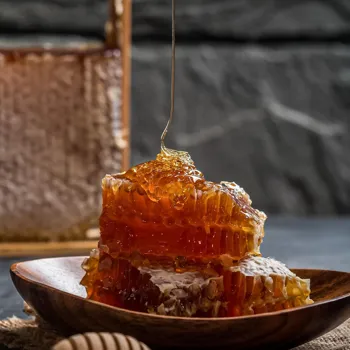
Some also report that honey can soothe a sore throat and suppress coughs, making it a natural remedy for common colds. Now, before you start replacing medicines with honey, remember that these benefits are mild and it's best to consult a doctor for serious ailments.
Glycemic index of honey impacts blood sugar levels
Now, let's discuss the glycemic index (GI). GI is a measure of how quickly a food raises blood sugar levels. Honey generally has a lower GI compared to refined sugar. This is because it contains a mix of glucose and fructose, with fructose being metabolized more slowly.
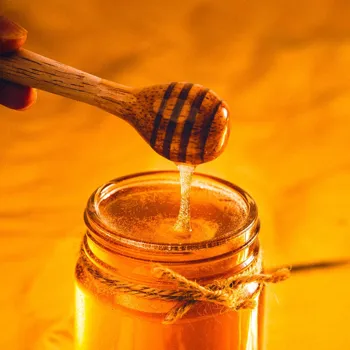
However, the GI of honey can vary depending on the type of honey. So, while it might not cause the same sudden spike in blood sugar as table sugar, it still impacts your blood sugar levels, especially if you consume a lot of it.
Honey is nutritious but high in calories, impacting weight and blood sugar
While honey has nutritional advantages over refined sugar, it's still a sweetener, and that means calories. A tablespoon of honey contains roughly 60 calories. These calories can add up quickly if you are not careful.
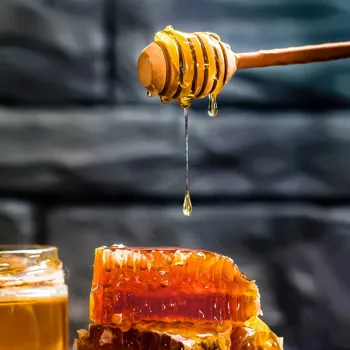
If you are trying to lose weight or manage your blood sugar, those extra calories can unknowingly hinder your progress. Remember, moderation is key, even with natural sweeteners.
Excessive fructose in honey can lead to health issues
Another thing to keep in mind is the fructose content of honey. Fructose, a type of sugar, is metabolized differently than glucose. While it doesn't raise blood sugar levels as quickly, excessive fructose intake has been linked to health issues like insulin resistance and fatty liver disease.
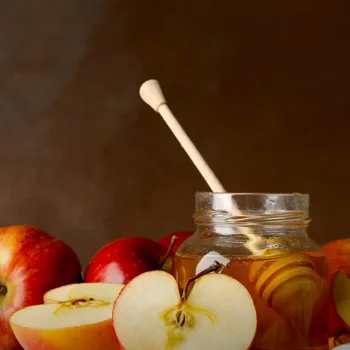
Honey can have high concentration of fructose depending on its source. So, while honey might seem like a healthier alternative, overdoing it can still have negative effects. It is very important to check the ingredients of processed honey before consuming.
Choose pure, raw honey for maximum benefits
Not all honey is created equal. The honey you buy in the local market might not be the same as the honey your grandparents got straight from the beehive. Many commercially sold honey products are processed, pasteurized, and sometimes even mixed with other sweeteners like corn syrup.

This processing can destroy some of the beneficial enzymes and antioxidants found in raw honey. Always choose pure, raw honey from a trusted source to reap the maximum benefits. Also read the labels carefully to check for additives.
Various honey types have unique properties based on flower sources
Have you noticed the diverse range of honey types available? From light-colored acacia honey to dark buckwheat honey, each variety has its unique properties. The color and flavor of honey depend on the flowers the bees visit.
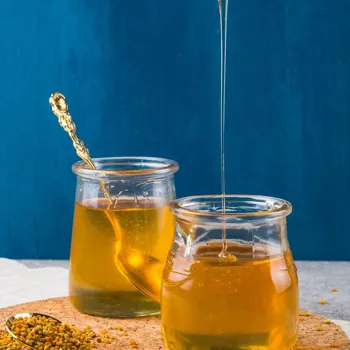
For example, neem honey, made from the nectar of neem flowers, is known for its medicinal properties. Similarly, tulsi honey boasts the benefits of tulsi, a sacred herb in India.
Manuka honey from New Zealand has potent antibacterial benefits
Different types offer different benefits and flavors. Manuka honey, sourced from New Zealand, is famous for its potent antibacterial activity. It is graded based on its Unique Manuka Factor (UMF), which indicates the level of antibacterial compounds present.

However, manuka honey can be quite expensive and might not be easily available in all regions of India.
Consider needs and preferences when choosing honey for health benefits or natural sweetness
When choosing honey, consider your needs and preferences. If you are looking for a specific health benefit, research the properties of different varieties. If you simply want a natural sweetener, opt for pure, raw honey from a local, reliable source.
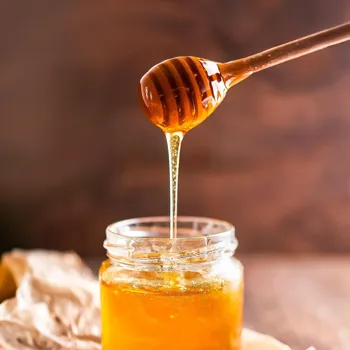
Buying directly from beekeepers often ensures that you get authentic, unprocessed honey. Look for certifications that indicate the honey is tested for purity and quality.
Honey is not a cure-all, watch intake for health conditions
While honey can be a part of a healthy diet, it's crucial to remember that it is not a cure-all. It's especially important for individuals with certain health conditions to be mindful of their honey intake. People with diabetes should monitor their blood sugar levels closely when consuming honey.
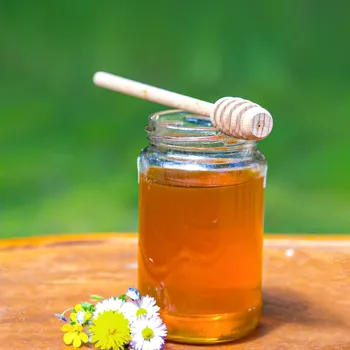
Although it might have a lower GI than refined sugar, it can still raise blood sugar levels.
Be cautious with honey if allergic to bee pollen
Those with allergies to bee pollen should be cautious when consuming honey, as it may trigger an allergic reaction. It is best to start with a small amount and watch out for any symptoms like itching, swelling, or difficulty breathing.
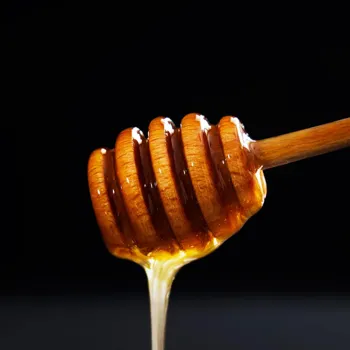
Infants under one year old should not be given honey because it may contain bacteria that can cause infant botulism, a serious illness. The child's digestive system isn't developed to contain these bacteria.
Consult doctor before using honey for health concerns
If you have any underlying health conditions or concerns, it's always best to consult a doctor or registered dietitian before incorporating honey into your diet. They can provide personalized advice based on your individual needs and health status.
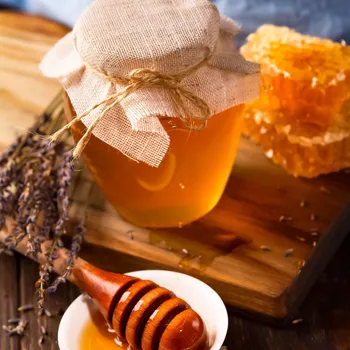
Self-treating health concerns with honey alone can be risky and may delay proper medical care.
Use honey as sugar substitute for healthier daily meals
Now that you are informed about honey's pros and cons, how can you incorporate it into your daily life in a healthy way? Start by using it as a substitute for refined sugar in your tea, coffee, or breakfast cereals.

Instead of reaching for the sugar jar, drizzle a small amount of honey on your oatmeal or yogurt. This can add a touch of sweetness along with some beneficial nutrients.
Honey enhances flavor in baking and cooking
Honey works as an ingredient while cooking, especially in baking. Use it instead of sugar in small quantities in cakes and sweets. It adds a distinctive flavor and a moist texture to your baked goods. You can also use honey to make your own salad dressings or marinades.
It blends well with other ingredients like lemon juice, vinegar, and spices, adding a touch of sweetness and depth.
Limit honey intake to 1-2 tbsp daily for health
Be mindful of the amount of honey you are consuming each day. Stick to one or two tablespoons per day as a general guideline. Remember that honey is still a source of calories and sugars, so it's important to use it in moderation to prevent unwanted weight gain and blood sugar spikes.
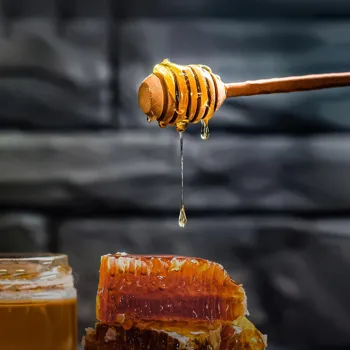
Make sure to consider other sources of sugar in your diet, such as processed foods and sweetened drinks.
Honey is a healthy sweetener with pros and cons
So, is honey a healthy sweetener? The answer is yes but it’s more complicated than you think. It has some nutritional advantages over refined sugar and offers potential health benefits like antioxidant and antibacterial properties.

However, it's still a source of calories and sugars, particularly fructose.
Choose pure, raw honey wisely for health benefits
To get the most out of honey, choose pure, raw varieties from trusted sources and use it in moderation. Be mindful of your overall sugar intake and consider any underlying health conditions you might have. Honey can be a delightful and beneficial addition to your diet when consumed wisely.
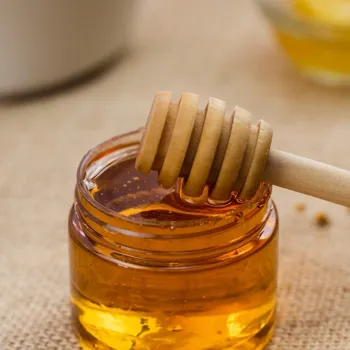
Remember, a balanced diet and a healthy lifestyle are the key to overall well-being. Don't rely on honey alone to improve your health.
AI Generated Content. Glance/InMobi shall have no liability for the content










